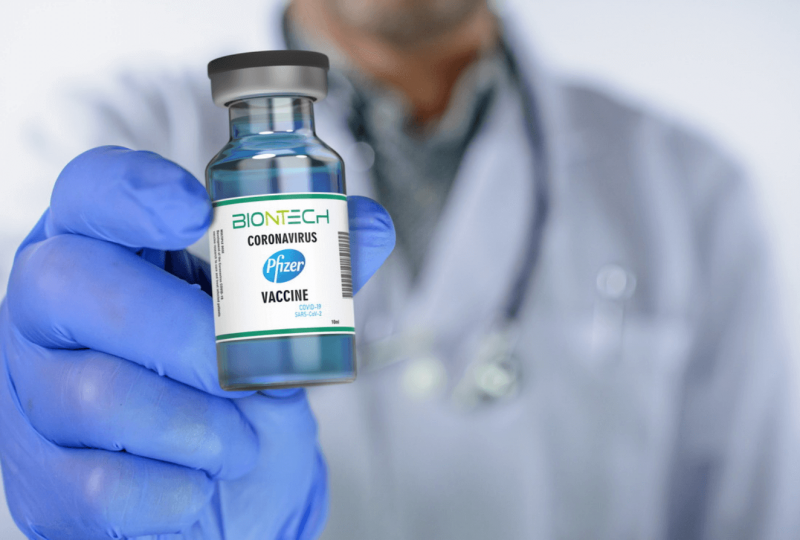BioNTech, Pfizer Vaccine Neutralises Omicron With Three Shots
Dec 08, 2021

BioNTech and Pfizer stated on Wednesday that a three-shot course of their COVID-19 vaccine was able to neutralize the new Omicron type, and that an improved vaccination may be delivered in March 2022 if required.
The German and U.S. companies said two doses of their vaccine resulted in significantly lower neutralising antibodies but could still be protective against severe disease.
"The primary line of defense, with two doses of vaccine, may be undermined," BioNTech Chief Medical Officer Ozlem Tuereci stated during a news conference. "Three doses of vaccination are necessary to reestablish protection." Two doses, according to the makers, may still be enough to protect against serious disease.
BioNTech and Pfizer are the first COVID vaccine producers to provide an official update on their vaccine's effectiveness against Omicron.
In samples of blood taken around a month after the third shot the Omicron variant was neutralised about as effectively as two doses neutralised the original virus identified in China.
To counteract the new strain, BioNTech CEO Ugur Sahin proposed that governments need to cut off the time between the second and third doses of the vaccine to combat the new form of virus.
He mentioned recent moves by nations such as the United Kingdom to shift the third shot forward from six months to three months after the second.
"We feel this is the best strategy, especially if the Omicron is expanding further, to provide a higher degree of protection throughout the winter season," Sahin added.
The Omicron variety, which was initially discovered in southern Africa and Hong Kong last month, has sparked worldwide concern about another outbreak. Cases have already been documented from Japan to the United States and across Europe.
On Nov. 26, the World Health Organization identified Omicron as a "variant of concern," but said that there was no evidence to prove the necessity for new vaccines targeted particularly at the variation.
Despite this, the firms announced they will keep working to develop an Omicron-specific COVID-19 vaccine. On Nov. 25, when the mutation initially caused alarm, work began.
They said that if an adapted vaccination was necessary, their projected manufacture of 4 billion doses of the Comirnaty vaccine in 2022 would not be affected.
The findings are similar to those of a preliminary study published on Tuesday by researchers at the Africa Health Research Institute in South Africa, which found that Omicron could partially survive after two doses of the Pfizer/BioNTech vaccine and suggested that a third shot could help ward off infection.
The new variation research is still in its early stages. According to research conducted at the University Hospital Frankfurt in Germany, the capacity to produce an antibody response to Omicron in people who had three injections was up to 37 times lower than the ability to mount an antibody response to Delta in people who received three doses.
BioNTech and Pfizer said that "the firms think that vaccinated people may still be protected against severe versions of the illness."
They claim that Omicron's mutations have little effect on the overwhelming majority of surface structures on the Omicron spike protein targeted by T-cells, which normally arise after immunization.
T-cells, together with antibodies, are the second pillar of an immune response and are thought to prevent serious illness by attacking infected human cells.
For their analysis, the two companies used a virus that was bio-engineered to have the hallmark mutations of Omicron, known as a pseudovirus, and blood was collected from subjects three weeks after a second vaccine dose or one month after a third.
There is no significant data yet on how vaccines from Moderna, Johnson & Johnson and other drugmakers hold up against the new variant but they are expected to release their own data within weeks.




